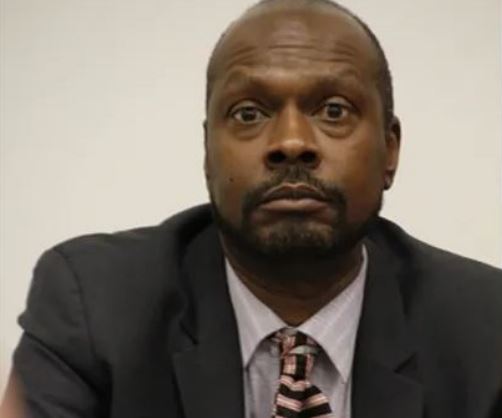[ad_1]
By Chris Anderson (7th District)
It was around 6:30 a.m. when I got the call from my friend, Darius. “Chris? This is Darius. Man, I’m in Philadelphia. I got that [stuff] that’s been going around.”
I was without words. Coronavirus? Did Darius really have COVID-19? I knew that Darius had signs of a common cold a few weeks before—cough, sore throat, slight fever. “Go to the clinic. Get that [stuff] checked out,” I repeatedly told him. But he never did.
Like many men on Baltimore’s streets, Darius, a 26-year-old Black man, is homeless. His mother passed away three years ago, and when his family lost their apartment, Darius took to the streets, mostly, in Downtown Baltimore.

As the COVID-19 epidemic rages on across the state, it reveals the deeper problems that we face in Baltimore’s grossly weak response to housing insecurity and homelessness. For years, community activists like myself, and to an extent, Darius [not using his real name to protect his identity] sought to address this persistent need. I would resort to social media, attend community forums and speak with area leaders on this issue.
The attitude was that there were available resources, largely procured by private charities, and that folks like Darius could easily be put on a pathway to housing stability if he just took the right steps. But the realities were not as easy. Folks like Darius knew what resources were available, but without any case manager or continuity in services, Darius drifted from charity to charity for various services (e.g., healthcare or food). The root cause remained housing insecurity and affordability. Without a stable roof over his head, Darius would remain an itinerant soul sometimes blessed by charitable alms.
When Darius finally made the decision to visit the clinic. He was noticeably sick. He tested positive for COVID-19 and was informed that he would need to be isolated for a minimum of 14 days. In his call to me that fateful morning, Darius revealed his disbelief, “They wanted me to be in isolation for 14 days. Where? Under a bridge?!”
Darius’ disbelief was genuine. Reflecting on his words, I asked myself: why should Darius trust the advice of healthcare workers and city authorities? For years, Darius’ life did not matter. More recently, Darius faced a more serious problem because Governor Hogan ordered many fast food restaurants to close, Darius had no place to wash his hands, use the restroom or do a “bird-bath” shower. There were no mobile handwashing sites, fewer busses, and few drop-in shelters that would allow him to clean up.
Moreover, there was little-to-no mention of how folks like Darius could secure a meal. Food pantries throughout the city are also coping with the COVID-19 pandemic and have resorted to transporting meals with little-to-no resources. If these food pantries were to again operate as before, there will undoubtedly be crowds—perfect spots for COVID-19 exposure.
Darius decided to defy medical orders and leave Baltimore City for Philadelphia (not his actual destination to again protect his identity). He jumped on a bus and headed North to self-quarantine at a friend’s place. His message to his friends about his condition must have been as startling for them as it was to me. Darius’s friends rightfully notified health authorities and upon arrival to Philadelphia by bus, he was immediately transported to the nearest hospital. Sadly, in the journey for more stable housing, Darius exposed countless others on the bus and at various stops.
At this moment, Darius is struggling for his life. He is overwhelmed with the guilt that his actions imperiled many others. Rather than blame Darius, I look further upstream. I ask why city leaders ignored folks like Darius for so long. Why didn’t these leaders prioritize homeless populations when COVID-19 first appeared in the U.S.? Why didn’t city leaders ever consider that an outbreak would find its ideal home in society’s most vulnerable individuals?
I’ve committed my life to fighting for the betterment of poor communities in Baltimore and helping to protect society’s most vulnerable. I have come across people like Darius who, despite their vulnerable status, still struggle to join the fight for a more livable city.
Sadly, our voices get drowned out by greed, indifference and systemic failure. Now, the urgency is more pressing than ever. In this COVID-19 pandemic, let’s move beyond the rehearsed talking points and glossy political mailers; let’s finally do something about eradicating homelessness and housing insecurity in Baltimore.
For more information on how to do so, visit: www.BaltimoreCity2020.com/Anderson.
The opinions on this page are those of the writers and not necessarily those of the AFRO.
Send letters to The Afro-American • 1531 S. Edgewood St. Baltimore, MD 21227 or fax to 1-877-570-9297 or e-mail to [email protected]
[ad_2]
Source link


